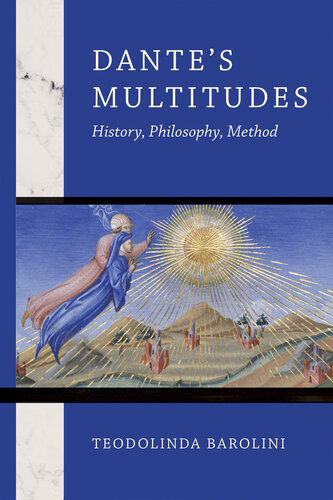

Most ebook files are in PDF format, so you can easily read them using various software such as Foxit Reader or directly on the Google Chrome browser.
Some ebook files are released by publishers in other formats such as .awz, .mobi, .epub, .fb2, etc. You may need to install specific software to read these formats on mobile/PC, such as Calibre.
Please read the tutorial at this link: https://ebookbell.com/faq
We offer FREE conversion to the popular formats you request; however, this may take some time. Therefore, right after payment, please email us, and we will try to provide the service as quickly as possible.
For some exceptional file formats or broken links (if any), please refrain from opening any disputes. Instead, email us first, and we will try to assist within a maximum of 6 hours.
EbookBell Team

4.8
94 reviewsA critical addition to Dante studies that illuminates the poet’s disruptive impact within Italian culture and foregrounds Barolini’s marked contribution to the field.
In Dante’s Multitudes, the newest addition to the renowned William and Katherine Devers Series in Dante and Medieval Italian Literature, Teodolinda Barolini gathers sixteen of her essays exploring the revolutionary character of Dante’s work. Embracing the Vita Nuova, De vulgari eloquentia, Convivio, Epistles, Monarchia, and Rime, and of course the Divine Comedy, these essays together feature the many facets of the poet’s enduring legacy.
Dante’s Multitudes showcases the poet’s embrace of multiplicity, difference, and disruption in five parts, each with its own general focus. It begins with an introductory essay on method and the use of history in order to set the stage for the expert analyses that follow. Barolini treats various topics in Dante studies, including sexualized and racialized others in the Comedy, Dante’s unorthodox conception of limbo, his celebration of metaphysical difference within the paradoxical unity of the Paradiso, and his use of Aristotle to think disruptively about wealth and society, on the one hand, and about love and compulsion, on the other. The volume closes with a final meditation on method and “critical philology,” highlighting the ways in which philology has been used uncritically to bolster fallacious hermeneutical narratives about one of the West’s most celebrated and influential poets. Barolini once again opens avenues for further research in this compelling collection of essays. This volume will be of interest to scholars in Dante studies, Italian studies, and medieval and Renaissance literature more broadly.